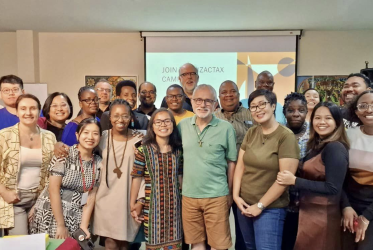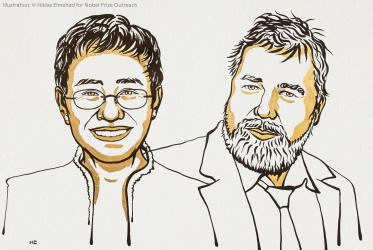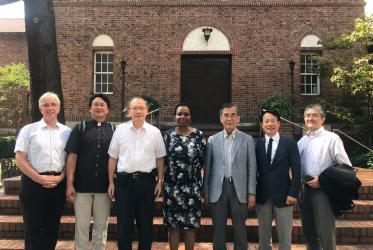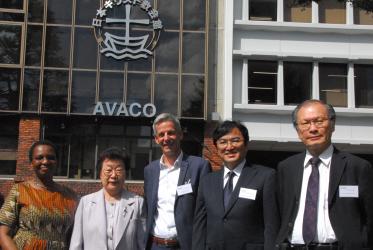Displaying 1 - 20 of 83
GEM School explores how to make new economic world order a reality
08 September 2023
Unity is key when health crisis poses new challenges in Asia
28 February 2022
WCC congratulates 2021 Nobel Peace Prize laureates
14 October 2021
ÖRK gratuliert zum Erhalt des Friedensnobelpreises 2021
11 October 2021
WCC offers prayer during Japanese peace conference
11 March 2021
New student body at Bossey Ecumenical Institute “a source of joy”
14 September 2020
In Japan, spirit of koinonia deepens
26 September 2019
In Japan, theologians reflect on today’s global manifestations of racism
18 September 2019
WCC organises event on “The Human Rights Situation in the Philippines”
18 September 2019
In Japan, indigenous and ecumenical youth call for action against racism
12 September 2019










